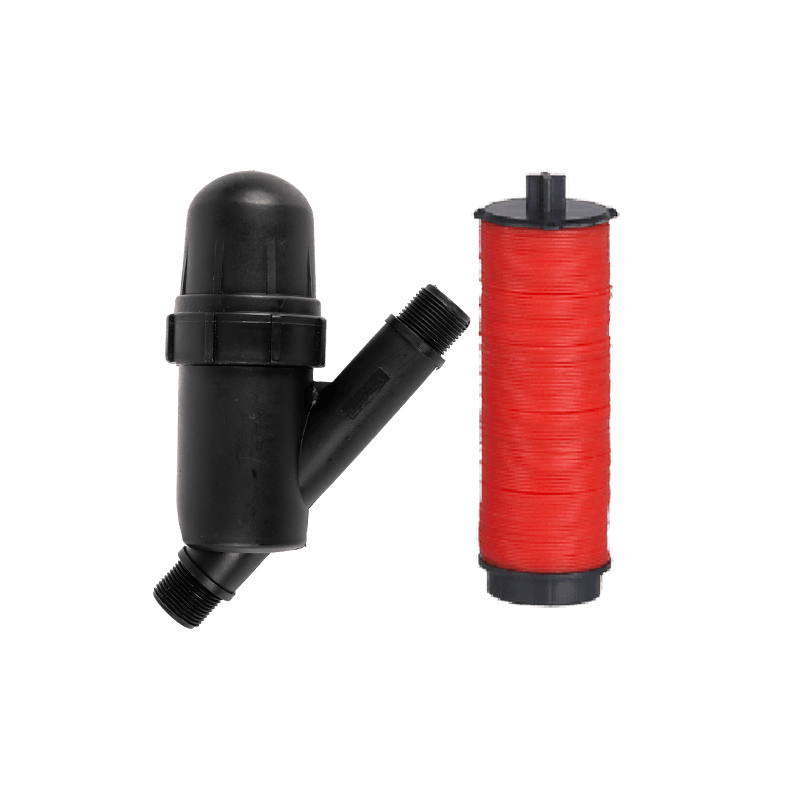 By Admin
By Admin Pressure Drop Due to Filtration Resistance: When a garden irrigation filter is introduced into an irrigation system, it inevitably adds a certain amount of resistance to water flow. This resistance, known as pressure drop, occurs as water is forced through the filter media, which is designed to trap debris and particulates. The extent of this pressure drop varies depending on several factors, including the design and type of the filter, the micron rating (which determines the size of particles the filter can capture), and the overall cleanliness of the filter. Filters with finer micron ratings tend to create a more substantial pressure drop because they have denser filter media, which imposes greater resistance to water flow. It is crucial to account for this potential pressure drop when designing or modifying an irrigation system to ensure that sufficient water pressure is maintained throughout the system.
Impact on Flow Rate and Pressure Due to Clogging: Over time, as the filter accumulates debris and particles, it can become clogged, leading to a significant reduction in both flow rate and water pressure within the irrigation system. A clogged filter restricts the flow of water, which not only diminishes the overall pressure but can also result in uneven water distribution across the garden or landscape. This reduction in pressure can have adverse effects on the performance of both drip and sprinkler systems, potentially leading to inadequate watering and plant stress. To prevent such issues, it is essential to implement a regular maintenance schedule for cleaning or replacing the filter, thereby ensuring that it operates efficiently and does not obstruct water flow.
Selecting the Appropriate Filter to Minimize Pressure Loss: To mitigate the pressure loss associated with filtration, it is imperative to select a garden irrigation filter that is appropriately sized and rated for your specific system’s flow rate and pressure requirements. Filters are available in various designs, some of which are engineered to minimize pressure drop, particularly in high-flow irrigation systems. For example, certain filters are equipped with larger surface areas or specialized media that reduce resistance while still providing effective filtration. By choosing a filter that matches your system’s operational parameters, you can significantly reduce the risk of excessive pressure loss and ensure that the system continues to deliver water efficiently and consistently.
Role of Pressure Regulation in Managing Pressure Changes: Many irrigation systems include pressure regulators that are designed to maintain consistent water pressure despite variations caused by different components, such as filters. A well-calibrated pressure regulator can help manage any pressure changes resulting from the installation of a filter, ensuring that the system continues to operate within its intended pressure range. By incorporating pressure regulation into the system design, you can mitigate the impact of the filter on overall water pressure and ensure that the irrigation system delivers water evenly and effectively to all areas of the garden or landscape.
YR9401A BSP3/4" irrigation disc filter

Specifications: 3/4"x3/4"(BSP)
Work pressure: 1.0-4.0bar
Flow:1-5m³/h
Mesh:100mesh 120mesh 150mesh